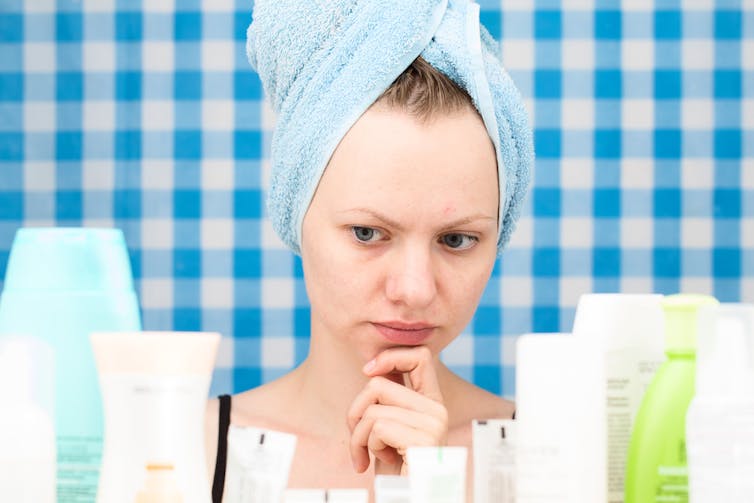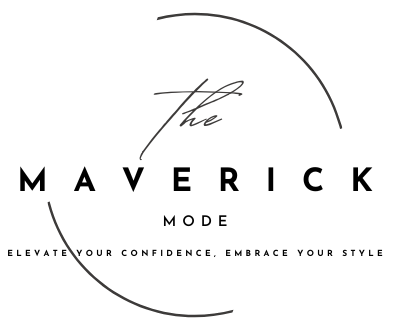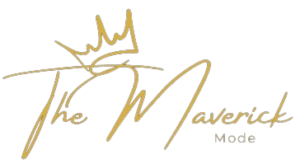You’ll have noticed that many skin and hair care products are advertised as “paraben-free,” or you’ll have come across online influencers warning that parabens are harmful to your health.
But what is a paraben? And will a minor ingredient in products that many of us use every single day really be that harmful to us?
Let’s take a closer look.
What are Parabens?
Chemically speaking, paraben is the collective name for a group of closely related compounds – the parahydroxybenzoates. The “para” refers back to the positions of certain parts of the molecule (which is where the “para” in “paracetamol” comes from).
There are several types of parabens, so it’s possible you’ll find methylparaben, ethylparaben, propylparaben, or butylparaben in a product’s ingredients list. They can also be listed as a more formal chemical name. For instance, methylparaben will be listed as 4-hydroxymethylediezoic acid or methyl 4-hydroxybenzoate.
Oliver Jones on the Molecular Icons Generator app
The shorter version is that parabens are a group of related molecules that are added in small amounts (lower than 1%, normally less) to foods, medicines and cosmetics as preservatives.
They prevent the expansion of harmful bacteria and fungi, thereby improving the shelf life and safety of the products. A couple of paraben will be used and they will be combined with other preservatives to guard against a number of microorganisms.
Parabens will be absorbed or ingested through the skin, but are generally eliminated quickly, normally through the body urine. They’ve been used for a long time and no parabens have been banned Australia.
Some studies in cell cultures or animals have shown that parabens can affect the endocrine system (which controls our hormones), but it surely is not clear how or in any respect if this is relevant to humans.
The amounts utilized in a few of these animal studies are much, much higher than in makeup, for instance. A lot of them Studies This included feeding or injecting the chemicals into the animals somewhat than applying them to the skin (which leads to much less absorption within the body).
You could even have heard that parabens are “estrogenic” (meaning they’ll mimic or influence estrogen within the body). In reality, they are parabens far less estrogen as natural estrogen (which each men and women produce). In addition they have a lower estrogenic effect than PhytoestrogensCompounds produced naturally by many plants.
Although there are worrying studies, the general risk for individuals who use parabens in normal doses is low. As Australia’s industrial chemicals introduction program puts It:
Available data don’t indicate risks related to exposure to the chemicals on this group. The chemicals have been shown to have weak estrogenic activity, but there are no proven adversarial consequences for this effect.
The US Food and Drug Administration got here to a similar conclusion: note
Nonetheless, studies have shown that parabens have significantly lower estrogenic activity than the estrogen naturally occurring within the body. Parabens haven’t been proven to be harmful when utilized in cosmetics because they only occur in very small amounts.
Is not course higher? Aren’t man-made chemicals harmful to you?
Whether something is natural or not says nothing about its safety.
Snake venom is natural, as are uranium, lead and mercury. I might not buy personal care products with these “natural” ingredients.
Many things we use without hesitation every single day—like aspirin, nylon, and silicone cookware—are synthetic.
Even the name of a chemical says nothing concerning the risk. If I told you that a substance contained ethyl butanoate, pentyl acetate, ethene and capric acid, would you eat it? Well, you’ve got probably already done that; these can all be present in Bananas and many other fruits.

Shutterstock
So why are people apprehensive about parabens?
This goes back to an often misinterpreted 2004 study that found parabens Breast tissue and breast cancer. Nonetheless, this does not imply much and doesn’t justify the claim that parabens cause cancer.
Correlation is not causation. The presence of parabens in a tumor doesn’t mean that parabens are also present within the tumor.
In reality, within the 2004 study, researchers only examined breast cancer tissue (and didn’t compare it to healthy tissue). They even found parabens of their blank samples (with no tissue in them). Identical to others have done written downIt is difficult to attract a real conclusion about what role parabens may or may not play in cancer risk.
Most of the endocrine disrupting belongings you hear about parabens on social media are normally from someone trying to seek out a “natural” or “clean” alternative, so it’s possible you’ll not be seeing the total picture.
And remember: the presence of something doesn’t mechanically mean it is harmful. Toxicology 101 is “The dose makes the poison.” All the pieces is toxic in the fitting amount, even water. We should always not ask whether a chemical causes cancer or acts as an endocrine disruptor, but somewhat whether it does so at the degrees to which we are exposed.
The scientific consensus of the US Food and Drug AdministrationThe Australian Industrial Chemicals Introduction Program and that European Medicines Agency and others is that the health risk for parabens in normal doses is very low.
Why are so many products marketed as “paraben-free”?
Avoiding parabens has develop into a very effective marketing tool. If people want paraben-free products and pays more for them, why not give them paraben-free products?
But paraben-free doesn’t mean the products are preservative-free, nor does it mean the products are safer (even when that is implied).
Once you remove parabens from a product, you will have so as to add other preservatives which may be less effective. This increases the danger of the product spoiling (some users of “clean” makeup brands have reported finding mold in products) and could even be harmful.
So what’s the decision?
Ultimately, the choice to make use of products containing paraben is a personal alternative.
As a chemist, I feel parabens are well-researched, secure and essential, but if you happen to are concerned you possibly can go for paraben-free products. Nonetheless, be mindful that they likely have a shorter shelf life, contain other (less effective) preservatives, and may produce other problems. I might take a small amount of a well-studied product well regulatedChemical in my skincare products about mold every single day.








